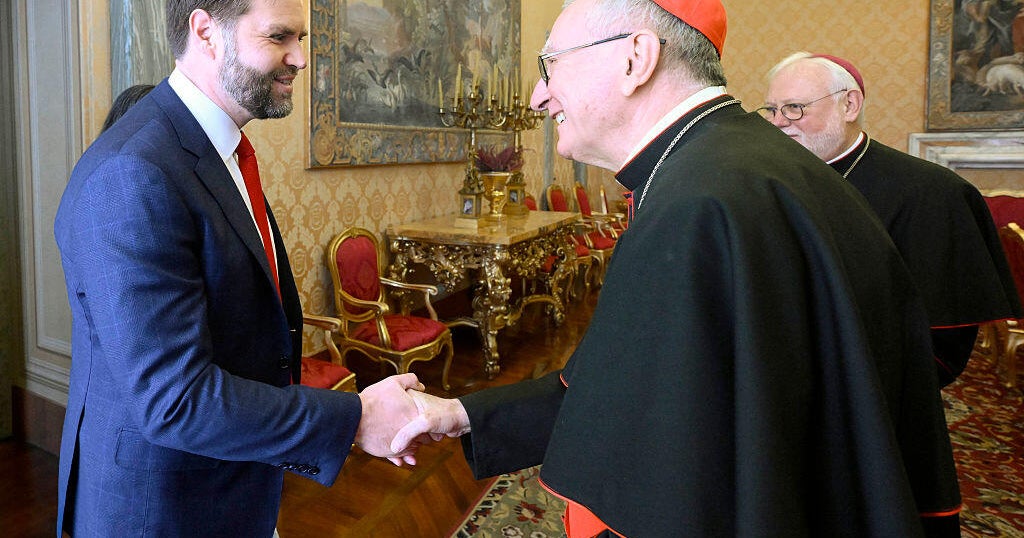
Source: cbsnews.com
Image content: The image shows two men greeting each other with a handshake in an ornate room. One is a clergyman in black and red vestments with a red cap, while the other wears a blue suit and red tie; another clergyman stands nearby. The room features elegant furniture, gold accents, and framed artwork.
Summary
U.S. and Iranian officials held a second round of largely indirect, Oman-mediated talks in Rome, signaling a potential diplomatic opening with plans for further expert and senior-level meetings. While U.S. officials describe very good progress toward a framework allowing peaceful nuclear energy under IAEA verification, the talks are clouded by mixed messages on enrichment, deep mistrust after the 2018 U.S. withdrawal from the JCPOA, and Iran’s insistence that enrichment is non-negotiable. Parallel regional diplomacy, including Saudi-Iran contacts and Iranian engagement with Russia, underscores the broader stakes amid heightened tensions. Critics warn Iran’s history of nuclear deceit and expanding enrichment capability demand strict limits and credible military deterrence, even as economic pressures and domestic discontent in Iran raise the cost of failure for both sides.
Key Points
- Second Rome-based, Oman-mediated round reported as making very good progress with more meetings planned
- Core dispute centers on Iran’s insistence on enrichment versus U.S. aims to prevent any path to a nuclear weapon under IAEA oversight
- Mixed U.S. messaging and deep mistrust after the 2018 JCPOA exit complicate the negotiations
- Skeptics cite Iran’s history and rising uranium stockpiles to push for strict limits and a credible military threat
- Regional dynamics and economic pressures heighten the urgency and potential impact of any deal